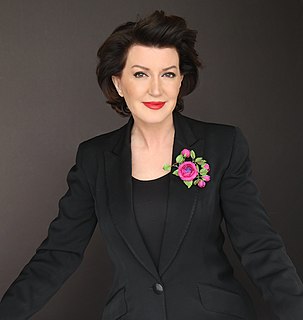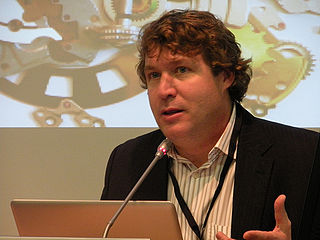A Quote by Vint Cerf
Information flow is what the Internet is about. Information sharing is power. If you don't share your ideas, smart people can't do anything about them, and you'll remain anonymous and powerless.
Related Quotes
We have to remember that information sharing is restricted by legal barriers and cultural barriers and by the notion that information is power and therefore should be hoarded so if you share information you can extract something in exchange. In today's digital online world, those who don't share information will be isolated and left behind. We need the data of other countries to connect the dots.
Governmental surveillance is not about the government collecting the information you're sharing publicly and willingly; it's about collecting the information you don't think you're sharing at all, such as the online searches you do on search engines... or private emails or text messages... or the location of your mobile phone at any time.
There's a lot of health information available on your smart phone. There's financial information. There's your conversations, there's business secrets. There's an enormous long list of things that there's probably more information about you on here than exists in your home, right. Which makes it a lot more valuable to all the bad guys out there.
I was in correspondence with an anonymous source for about five months and in the process of developing a dialogue you build ideas, of course, about who that person might be. My idea was that he was in his late forties, early fifties. I figured he must be Internet generation because he was super tech-savvy, but I thought that, given the level of access and information he was able to discuss, he had to be older.
If you share information widely, but you present that information in ways that fits your own view, you're actually still misrepresenting. So instead what you should do is figure out ways to build systems that allow people to experience and classify their information in ways that are meaningful for them.
The whole thing about writing a play is that it's all about controlling the flow of information traveling from the stage to the audience. It's a stream of information, but you've got your hand on the tap, and you control in which order the audience receives it and with what emphasis, and how you hold it all together.
For years, we've been bludgeoned with the cliche "information is power." But information isn't power. After all, who's got the most information in your neighborhood? Librarians. And they're famous for having no power at all. And who has the most power in your community? Politicians. And they're notorious for being ill-informed.




































